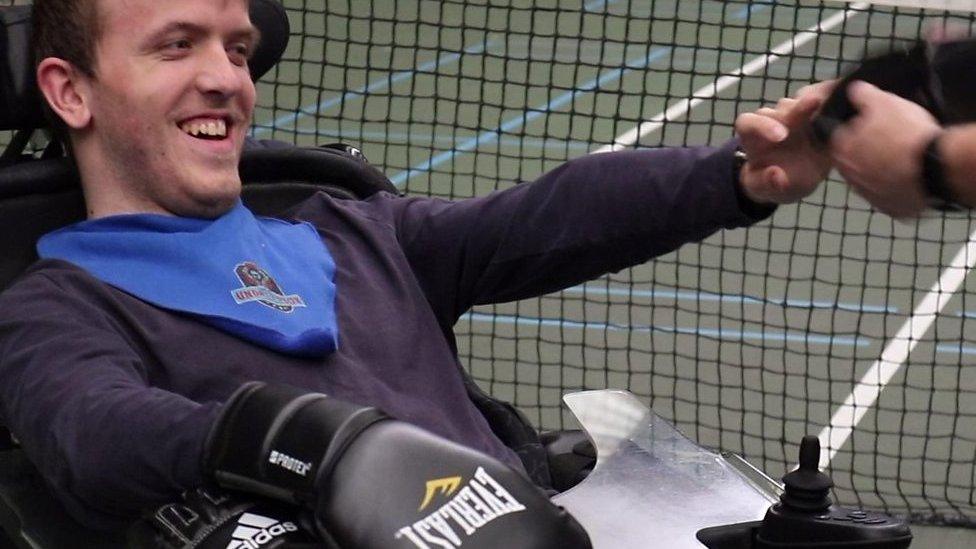Excluded from school: How boxing helps teenagers with ADHD
- Published
Jamie, 11, said boxing "helps me get my anger out and it helps me control it"
These teenagers all have ADHD and have been excluded from mainstream school. Here they tell how the sport of boxing is helping them channel their excess energy and improve their life skills.
In an amateur boxing gym in Barry, 14-year-old Levi is tugging on his boxing gloves, ready to join his friends in training.
Some are already practising in the ring, aiming jabs and uppercuts.
Others are punching the bags or skipping as music plays in the background and the smell of sweat and chalk permeates the air.
Levi is a fighter.
He always has been. In fact, he has been excluded from school twice for disobedient behaviour.
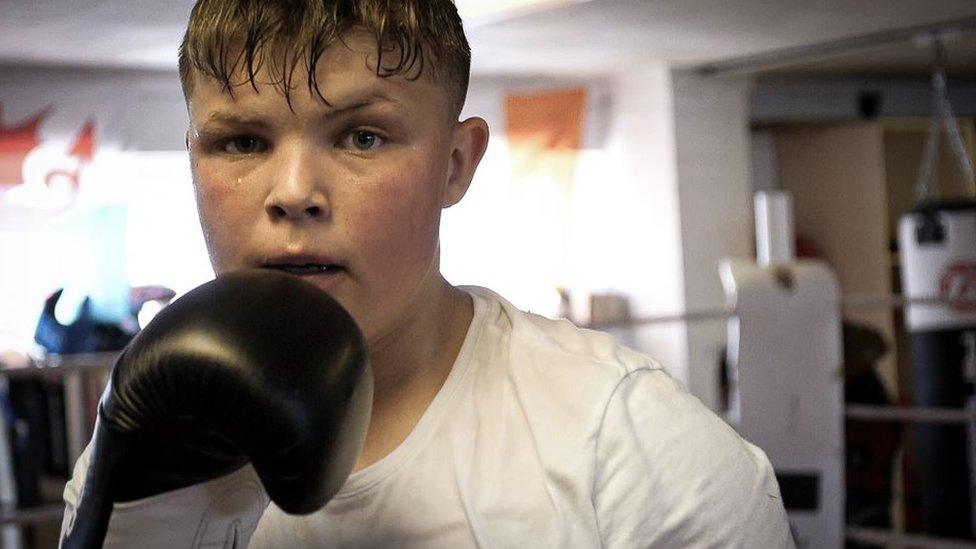
Before he was diagnosed with ADHD, Levi believed he was just a naughty kid
But now he's using the discipline of boxing to channel his fighting spirit in a more positive way.
Every Thursday, he partakes in a two-hour non-contact boxing session at Colcot Amateur Boxing Club, designed to help pupils who have been excluded from mainstream school.
"I used to lose my temper easily," Levi explains. "I started a lot of fights and used to mess up the classrooms.
"I used to be really disrespectful to the teachers and felt so down all the time, thinking I was just a naughty kid."
Once excluded, however, and sent to a pupil referral unit in the Vale of Glamorgan, Levi got diagnosed with attention deficit hyperactivity disorder (ADHD) - a condition which causes inattentiveness, impulsiveness and an inability to stick to tasks.
It is also closely linked with underachievement at school, poor social interaction and problems with discipline.
"The diagnosis and medication helped," he explains. "But it's the boxing that really helps as I'm always so full of energy and struggle to concentrate.
"I get excited and want to train my best.
"Anthony Joshua is my role model and I want to follow in his steps.
"But my main aim now is just to get my head down and get my GCSEs."

Aalijah, 14, says the boxing helps her to calm down and concentrate
It is a similar story for Aalijah, 14.
She too has ADHD and her inability to concentrate meant she fell behind academically from a young age, causing her behaviour to spiral.
Frustrated with school and feeling like she constantly had to "catch up", she was eventually excluded for intimidating her teachers.
"I don't like school," she explains. "It puts me under pressure and frustrates me.
"If I try to concentrate on something, my mind is just blank… and with the ADHD, I can't control what I do. It's like my body is locked back and in its own trance."
But if Aalijah struggled with school, in boxing she has found something she loves.
"The boxing really helps," she explains. "It lowers my energy and calms me down, helping me to concentrate.
"After it, I feel a lot calmer and more sensible."
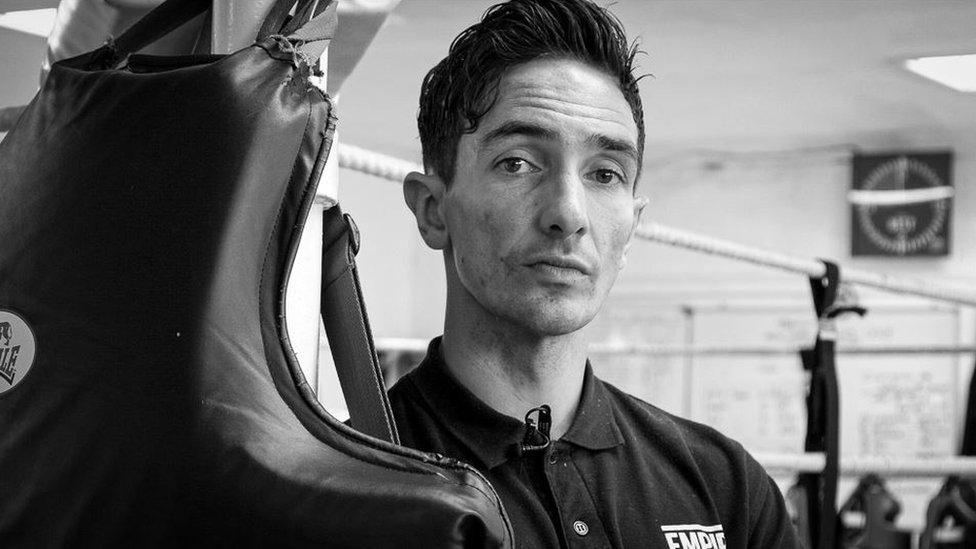
Coach Nathan Powell is aiming to improve the students' confidence and resilience
Aalijah and Levi are just two of the teenagers helped by the weekly boxing sessions.
Run by Empire Fighting Chance, a Bristol-based charity that launched in south Wales in 2016, the classes are designed to teach confidence and resilience, improving the life chances of those involved.
It is now expanding across the whole of Wales, with sessions due to begin in Rhyl, north Wales, and other locations by the end of the year.
Explaining the benefits, coach Nathan Powell, says: "Many of the kids we see have anxiety and confidence issues and struggle to work with others.
"At the start of the sessions, team activities always end in arguments and confrontation.
"But with work and drills, their confidence grows and they become a member of a team. These kids are also used to failing, so we break things down into mini goals, like building up the number of skips they can do.
"This helps them reach a target and achieve something. It's very important and makes them feel good about themselves."
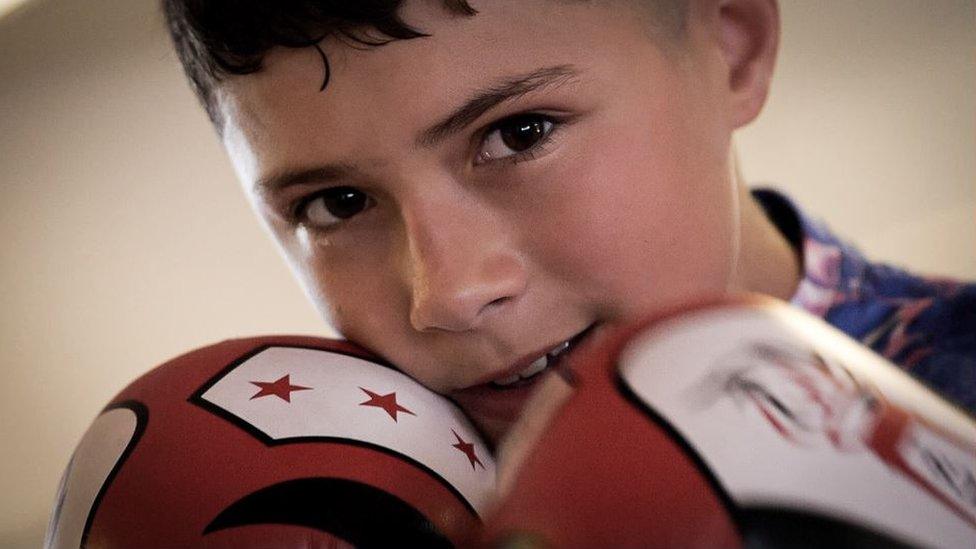
Jamie says boxing helps control his anger - a big part of his ADHD
A third pupil, Jamie, 11, got excluded from primary school when he was just nine despite teachers knowing about his diagnosis. "Anger is a big part of my ADHD," he says. "If I get annoyed it takes me a long time to calm down.
"But the boxing helps me get my anger out and it helps me control it."
As for Jamie Parry, head of business development for Empire Fighting Chance, he believes that mainstream education might not be for everyone.
"Many children need a different way of learning," he says.
"We try to boost aspiration by providing good role models in the form of our coaches, and we drop in personal development tips about nutrition and sleep.
"The pupils often see teachers as a negative sign of authority so we try to build trust with them."
According to statistics from the UK ADHD Partnership, children with ADHD have more than 100 times greater risk of being permanently excluded from school than other children.
Roughly 40% of children with ADHD have had fixed-term exclusions from school and 11% have been permanently excluded.
Susan Young, president of the UK ADHD Partnership, said: "Sporting activities, such as boxing, are so good for children with ADHD.
"They learn how to interact with people, adapt to an environment and judge situations - skills that will help in real life.
"Boxing, especially, teaches impulse control and channels emotions in a constructive way.
"People with ADHD have so many positives. They are often fun, creative and engaging. They might simply need help to channel their energy and sport is great way to do this."

What is Attention deficit hyperactivity disorder (ADHD)?
ADHD is a behavioural disorder with symptoms that include inattentiveness, hyperactivity and impulsiveness
These may result in an inability to concentrate, being unable to sit still and having little or no sense of danger
Symptoms of ADHD tend to be noticed at an early age, with most children diagnosed between age six and 12
These symptoms can cause significant problems in a child's life, such as underachievement at school, poor social interaction with other children and adults, and problems with discipline.
Source: NHS, external
- Published20 March 2019
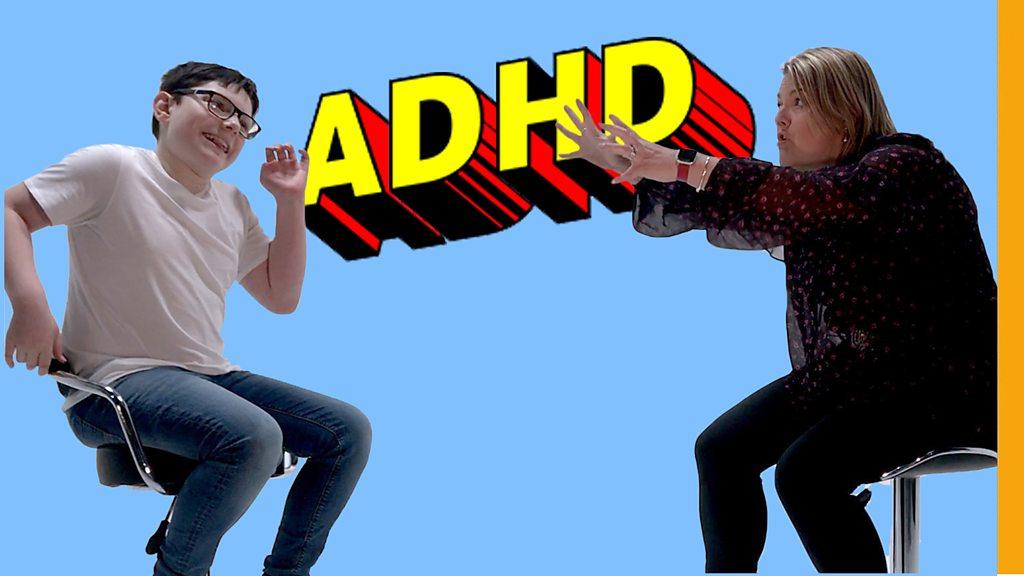
- Published27 October 2014

- Published19 March 2019
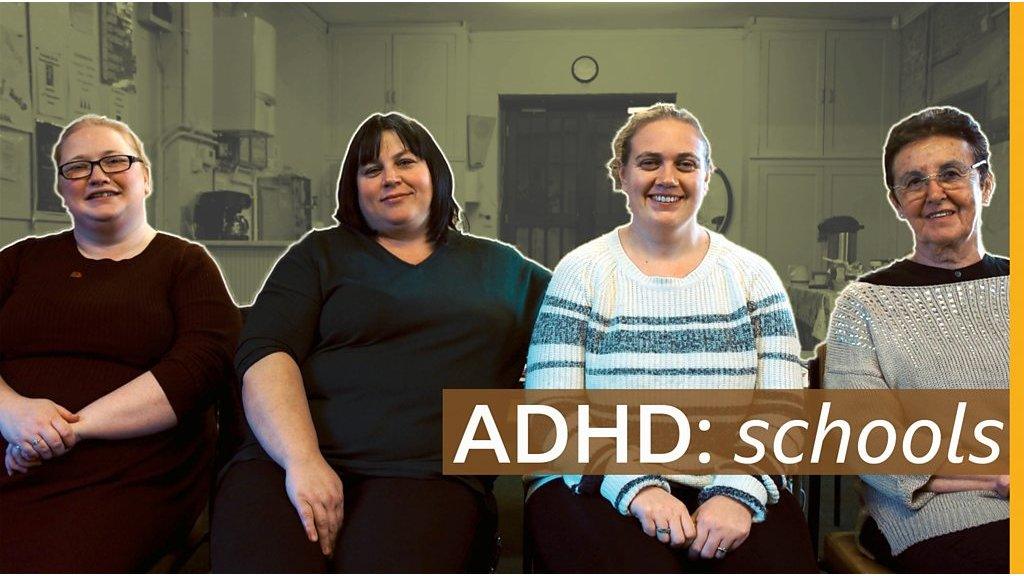
- Published15 May 2019

- Published21 May 2019
